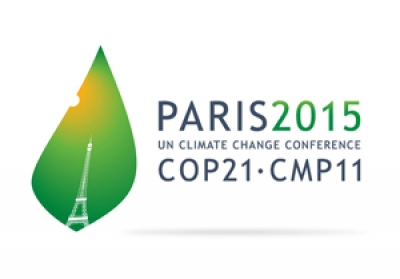Shipping’s rocky road to Paris and COP 21

The shipping industry would seem to be firmly in the target zone as the opening salvos are fired prior to the December meeting of the UN Framework Convention on Climate Change – COP 21 - when environmentalists from around the globe jet en masse into Paris.
A somewhat personal attack on the secretary-general of the IMO winged in from the foreign minister of the Republic of the Marshall Islands, in which Koji Sekimizu was described as a “danger to the planet” for his insistence that the role of shipping was most appropriately undertaken by IMO.
The economists of the Organisation for Economic Co-operation and Development International Transport Forum have suggested an enormous tax of US$25 per tonne of CO2 be imposed on shipping, which would provide a heaven-sent contribution to the “Green Climate Fund”, to which so many of those bound for Paris aspire.
The fund, of course, will be one of the prime objectives of the upcoming talks, so it might be suggested that the undiplomatic outburst of the RMI politician and the policy suggestions of the economists are not unconnected to this proposed pot of money. The Marshall Islands, despite being the third largest ship register (fables involving golden geese come to mind), already earning substantial sums from the use of their flag, is one of the micro-states which profess to be victims of climate change and its threatened sea level rises. Whether justified or not, they are anxious to stake their claims to financial compensation, should the seas indeed rise around their shores. There will be no shortage of other claimants in the pipeline, once the huge fund is available for administration, free money always being hard to resist.
The IMO, which is a technical and not a political body, has been at pains to point out the very real progress that has already been made to make shipping more sustainable, with substantial reductions in total CO2 emissions and those per tonne-mile. It has been doing something concrete, not merely shouting from the sidelines, but as there are no “market-based measures”, nor carbon taxes, contemplated in the implementation of the Energy Efficiency Design Index agreed by IMO members, there is thus no pot of money from which others may draw. Those carbon warriors and traders, who regard sea transport as a seam of rich gold, which can be mined to their benefit, are clearly disappointed and will be stepping up their attacks upon maritime transport.
As always, some practical good sense has come from the International Chamber of Shipping, which has pointed out that the shipping industry is not an OECD economy and should not be treated as such.
Perhaps one of the problems is that shipping, which substantially benefits pretty well all of mankind, has not been political enough, carrying on its work largely over the horizon and failing to respond to the attacks of environmental activists, who can more effectively bend the ears of politicians. IMO has focussed on what is practical and achievable, and has not been unsuccessful, with its functioning MEPC, in implementing a whole range of environmental improvements, but has been attacked, mostly unfairly, for their pace. The prospect of a wholly political organisation, like the UNFCCC, imposing its will on an industry it clearly fails to understand is, to say the least a matter of grave concern.
Meanwhile, look for the “conversation” around climate change to be stepped up in the next few weeks. There will be more demonization of those who are brave enough to dispute the political consensus, plenty of TV footage showing melting glaciers and (probably) ships with smoky funnels. A prominent and senior French meteorologist, who was insufficiently on the climate message, has been taken off the air. Pour encourager les autres.
HEADLINES
- Do shipping markets want Biden or Trump for the win?
- All 18 crew safe after fire on Japanese-owned tanker off Singapore
- Singapore launching $44m co-investment initiative for maritime tech start-ups
- Cosco debuts Global Shipping Industry Chain Cooperation Initiative
- US warns of more shipping sanctions
- China continues seaport consolidation as Dalian offer goes unconditional